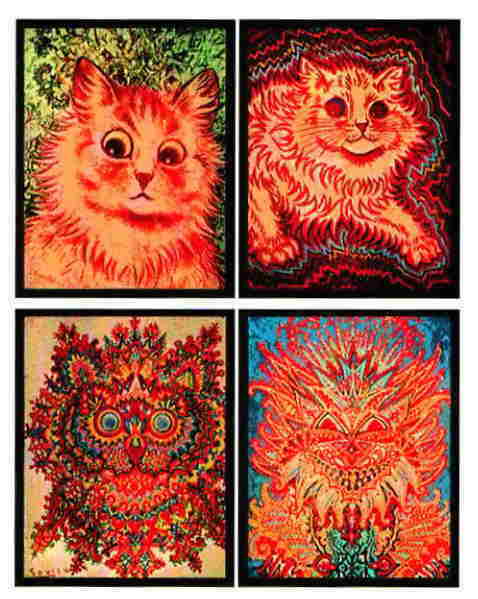
The voices sounded real. The first time Hans heard one of them, a young woman's scream of pain, he called the cops and reported a rape in progress. But the police couldn't find a crime or a scene, and they couldn't hear the screams, either, though Hans still heard them and was still hearing them hours later as he raced up the highway to escape.
It wasn't long before he started hearing other voices, too, every bit as audible as the voices of the doctors who said it was all just in his head. From hidden places the voices whispered and shrieked, warning Hans of murder conspiracies, threatening him with savage violence, commanding him to kneel and pray. So he began to talk back to the voices, to cut deals with them: "I'll pray for an hour a day, OK? Is that enough?" Apparently it was; in just a few weeks the voices' tones had become less shrill, more compromising. They started offering encouragement instead of threats -- until one day they fell silent. Hans hasn't heard from them since.
Cases like Hans' seem to hint at a rather exotic idea: Perhaps more than one "person" or "personality" (whatever that means, exactly) can inhabit the same brain. That's certainly what bestselling authors like Flora Rheta Schreiber and Daniel Keyes insisted when they wrote their "true-life" accounts of patients with multiple personality disorder.
The problem is that that disorder has proven to be too controversial for comfort. Today it's known as dissociative identity disorder (DID), mainly because it's got more to do with a patient's sense of identity than with his or her personality, and debate continues over its causes and its nature. Some researchers question whether the disorder is real at all, given that that diagnoses of DID were almost nonexistent before the 1980s, peaked in the 1990s (along with DID's 15 minutes of fame), and then declined sharply afterward. Statistics of UFO sightings show similar patterns.
Whether a person's "identities" can be dissociated or not, it's clear from Hans' story that certain aspects of a mind can become somehow "out of step" from one another. And that's essentially what neuroscientists think is happening in a schizophrenic person's brain: various neural networks can't sync up their activity very well, so they can't communicate as they would in a healthy brain. It's easy to see how this problem could result in some of schizophrenia's most common symptoms: an inner ear for disembodied voices, a hard time assembling trains of thought, a range of disorganized body movements, and so on.

Through all these cases, though, runs the common thread of dissociation: Inner monologues seem to come from outside, acting willfully feels like obeying orders, and a person's own goals and desires seem like those of another person. Indeed, some authors have claimed that for all practical purposes, they are someone else's words and desires. The psychologist Julian Jaynes, for instance, has argued that these "external" voices and wills are relics of our ancient brain physiology; that they are, in fact, the very same gods heard by our ancestors.
The fact is, though, there's a much more neuroscientific way to interpret the facts, a simpler explanation that doesn't beg any metaphysical questions about gods: Your sense of self is assembled on the fly, moment by moment, from a wide variety of semi-independent processes. Certain regions of the cerebral cortex help those processes feel like parts of a unified whole, in both physical and conceptual terms, but "identities" and "personas" are both likely to be products of the human imagination.
Which is also true of the voices Hans heard. Self-identity is obviously more complex than hallucinated sound, but is it possible that your sense of self is exactly that: a sense, one that can be manipulated and deceived, like all the others? And if so, who or what is sensing it?